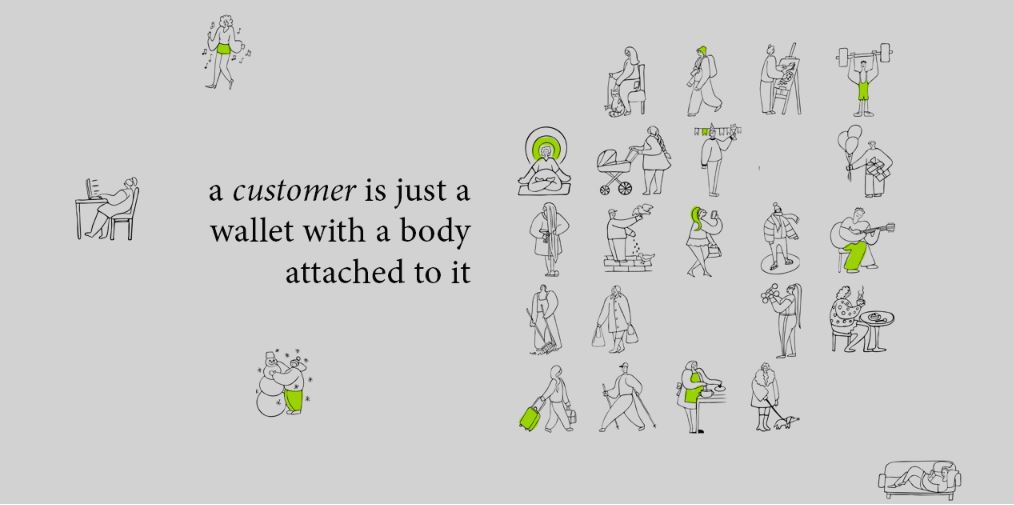the language that you speak shapes the way that you think. And that gives you the opportunity to ask, “Why do I think the way that I do?” “How could I think differently?” And also, “What thoughts do I wish to create?” — Lea Boroditsky (1)
We choose labels to describe the world and these labels shape the lenses through which we understand and act on the world. Boroditsky uses an example: if an accident where to happen an English speaker would focus on the perpetrator (who did it?) while a Spanish speaker on the intentions leading to the incident (why did it happen?).
This relates to how organizations choose to describe the world and particularly the common label customers. Are there really any customers?
If I am in the mattress making business labelling someone as a customer will describe their moment of purchase not their years of usage. What would be the best language to improve my products, innovate or direct my marketing? Why are people engaging with me and buying from me in the first place? Is it because they want to buy a mattress or because they want to use a mattress? What do they need from their sleep, cuddles, cozyness, mornings, rest that motivates them?
Our language and labels should help us access and take part in the main motivators and drivers through which people are using and enjoying (delighting in) our products. We need to see our products through the lens of their lives not see their lives through the lens of our products.
e.g. a physician might describe to a patient a disease through the lens of the illness. “..these are the effects of the illness on smell, breathing or joints …” While a patient will try to understand the illness through the lens of his life: “What will my future look like, will I be able to go on runs with my wife, meet my colleagues at the office, hug my kids, sleep etc.”
Very few companies should have customers. As it reflects the moment of purchase. It reflects a wallet with a body attached to it. And the intention of any product is not to be sold, it’s to be used and enable desired outcomes.
A few of my own guides to identify a better language:
- How would they describe the situation they are in?
- What are they trying to achieve, what are their desired outcomes?
- What label would a person use to describe themselves given 1 and 2
“It would be an act of mere reductionism to think of these people as mere users — as operators that need to be taken care of” — Anthropologist Rikke Ulk (2)
Sources:
(1) How language shapes the way we think, TED, https://www.ted.com/talks/lera_boroditsky_how_language_shapes_the_way_we_think
(2) Why the World Needs Anthropologists, https://www.appliedanthro.org/publications/news/november-2020/why-world-needs-anthropologists
Read the original post here.


